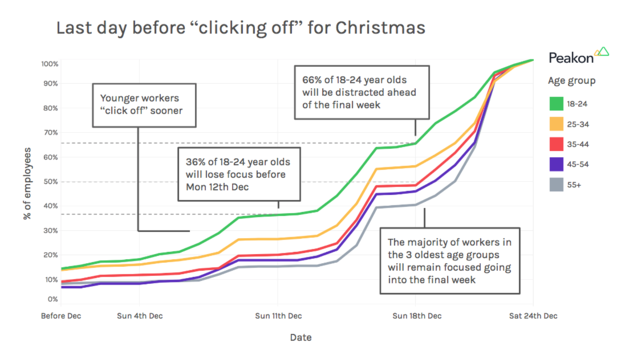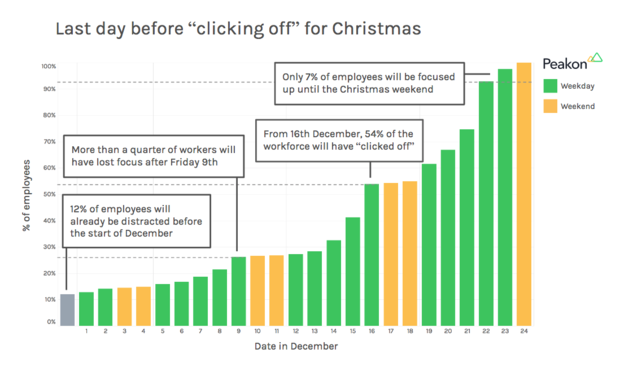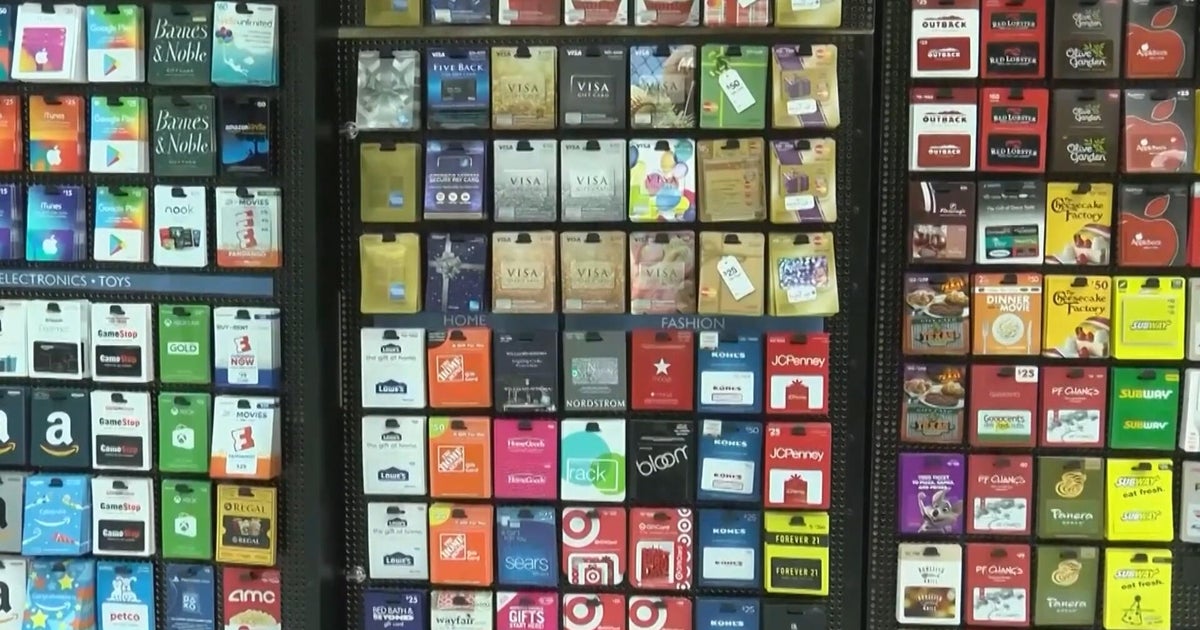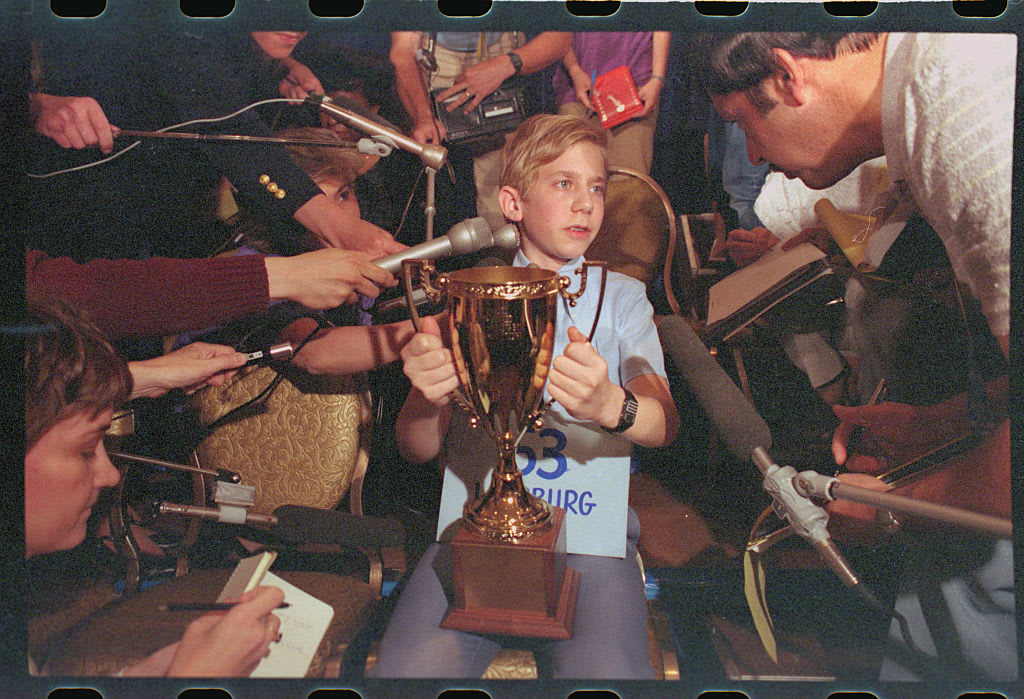Who's really working as the holidays approach?
Pity the company that wants its employees to work hard during the holidays. Chances are, even if they’re in the office, those workers are mentally checked out, a trait that’s even more likely among millennials.
Older employees are more likely to stay focused during the holidays, while millennials are the least likely, according to a new study from data analysis company Peakon, which surveyed 3,000 British workers. Dan Rogers, co-founder of Peakon, said he believed the findings would hold up for U.S. employees, given the similar workplace views between Western Europe and America.
About 56 percent of workers between the ages of 25 to 34 say they don’t believe they’ll keep their concentration this week, the final workweek before Christmas, the survey found. Older workers are much more likely to say they’ll stay on task, with the majority of workers over 35 years old predicting they’ll remain focused during the week of Dec. 19.
That might suggest millennials aren’t measuring up to older generations when it comes to their work ethic, although Peakon pointed to another issue affecting younger workers: Christmas creep.
The holidays are increasingly pushed earlier into the calendar, with Black Friday sales kicking off before Thanksgiving and retailers setting out Christmas wares in August. Younger workers who have grown up with this as the norm may be reflecting the societal Christmas creep, while older workers may be more immune to the trend.
“When you think of it from a millennial point of view, their whole working life has been in a culture where Christmas starts at the end of November,” said Dan Rogers, co-founder of Peakon. “At my first job, which was 15 years ago, we were lucky if we got to leave early on Christmas Eve, and now it’s the week before Christmas.”
Nevertheless, the workforce appears to be undergoing a generational shift in attitudes toward labor. Twenty-five percent of high-school seniors from 1976 to 1978 -- part of the baby boom generation -- said they didn’t want to work hard, according to the Monitoring the Future study.
When the study checked in with high school seniors from 2005 to 2007, it found that 39 percent said they didn’t want to work hard. That group, who are now millennials in their late 20s, were also more likely than boomers to say that work was “just making a living” and that they weren’t willing to work overtime to do the best job.
Of course, views that one holds when 18 years old change with time. Research into current workers’ behavior adds nuance to generational work habits, such as Bankrate.com’s findings that more than half of Generation X workers use all their paid time off, the most of any generation. Millennials and boomers are fairly neck-to-neck, at 44 percent and 43 percent, respectively, using their entire paid time off in a year.
Rogers said he doesn’t hold with that stereotype of millennial workers, adding, “Every single generation accuses the next generation of being lazy.” He said, “I’m more inclined to be believe that with millennials in particular, that their productivity declines earlier probably because there is more distraction at work, and they have access to Facebook and Twitter. They have their phones at work.”
Workers of all ages are more likely to mentally check out as the calendar approaches Dec. 25, the study found. Thursday, Dec. 22, is likely to show the sharpest spike in employees enjoying visions of sugar plums rather than getting their projects completed. About 18 percent of the workforce will be losing interest in their jobs that day.
By Friday, the last workday before Christmas, only 7 percent of workers said they’d still be fully engaged at their jobs.
How can employers cope? First, consider shutting the office between Christmas and New Year, which Peakon describes as a “dead time” for productivity. Second, plan to have some fun on the last workday before Christmas.
“Christmas is a great time to work on side projects, and if you’re a knowledge worker and find yourself in a situation where productivity is declining, then there are always interesting side products,” Rogers said.
“From a management point of view,” he said, “rather than fight it, make the most of people being in a great mood. They will be amenable to team-building, doing creative things. The more than you can capitalize on that rather than trying to fight it, the better off you’ll be.”







